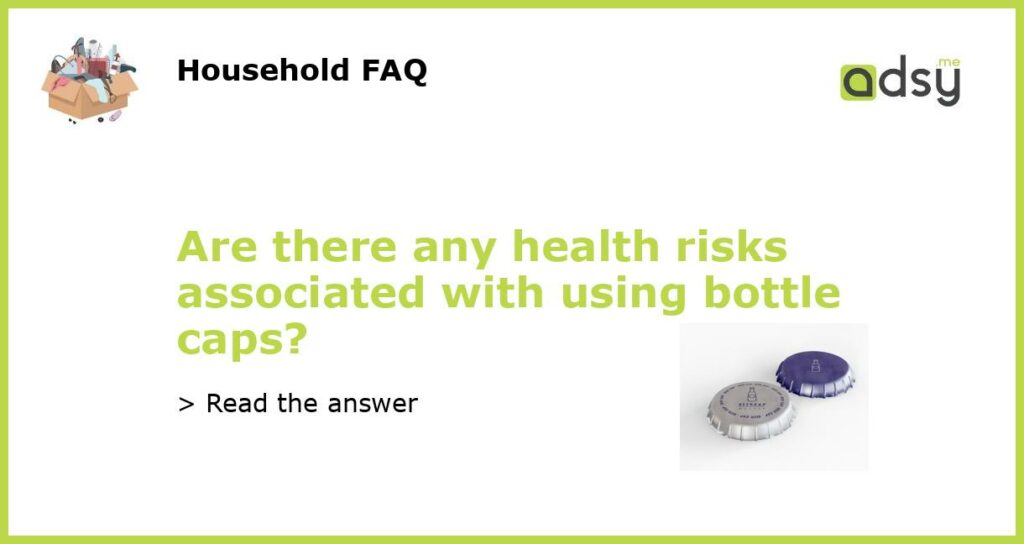Bottle caps are an essential everyday item used to seal the contents of various beverages, including water, soda, and juices. They are made using a mixture of materials such as plastic, aluminum, and metal. Although bottle caps seem harmless, there are concerns about health risks associated with their use. This article will explore these concerns and determine if there are any health risks associated with using bottle caps.
Plastic Bottle Caps
One of the primary materials used to make bottle caps is plastic. Plastic bottle caps are widely used, especially on water bottles. There is a common belief that using plastic bottle caps can lead to health risks since they are made from petrochemicals, a derivative of crude oil. Some studies claim that harmful chemicals, such as bisphenol A (BPA), may leach into the water or beverage if the bottle is left in the sun or heat. However, the US Food and Drug Administration (FDA) has concluded that the levels of chemicals released from bottle caps into beverages are minimal and pose no significant health risks to the public.
Metal Bottle Caps
Another material commonly used to make bottle caps is metal. Metal bottle caps are mostly used on carbonated soft drinks and beers. Metal bottle caps can cause health risks if they contain lead or cadmium, two toxic metals that can harm human health. However, the US Centers for Disease Control and Prevention (CDC) states that the exposure to lead or cadmium from metal bottle caps is unlikely to cause any significant health effects.
Choking Hazard
Bottle caps also pose a choking hazard, and they should be kept away from children below the age of three who may swallow them. Ingesting a bottle cap can cause severe injury or death, especially if it gets stuck in the throat or digestive system. Therefore, it is essential to dispose of bottle caps safely and keep them out of reach of children.
In conclusion, bottle caps made from plastic or metal do not pose significant health risks when used as directed by manufacturers. The levels of chemicals released from bottle caps into beverages are minimal and are unlikely to cause health effects. However, bottle caps should be kept away from children below the age of three as they can cause choking hazards. The use of bottle caps has been a staple in everyday life and will continue to serve their purpose of keeping beverages sealed and fresh.






